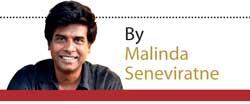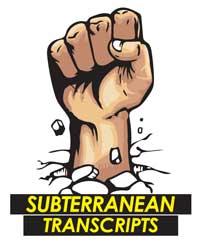Reply To:
Name - Reply Comment

 (Dr) Jayampathy Wickramaratne, President’s Counsel, is absolutely spot on when he says “The doctrine of necessity is not a panacea for all ills, not a “kokatath thailaya” (see his article, ‘Doctrine of Necessity: Can it be invoked to govern without Parliament?). If indeed ‘doctrine of necessity’ is taken as a panacea for all ills, we would not need to have laws. ‘Necessity’ can be conjured at will by those who have the power to cite and, as is quite possible, benefit from its execution. This is why any discussion of the ‘Doctrine of Necessity’ is attended by a consideration of ‘Constitutional Exceptionalism.’ Sadly (and not unexpectedly, considering track record) Wickramaratne utters not a word about the latter.
(Dr) Jayampathy Wickramaratne, President’s Counsel, is absolutely spot on when he says “The doctrine of necessity is not a panacea for all ills, not a “kokatath thailaya” (see his article, ‘Doctrine of Necessity: Can it be invoked to govern without Parliament?). If indeed ‘doctrine of necessity’ is taken as a panacea for all ills, we would not need to have laws. ‘Necessity’ can be conjured at will by those who have the power to cite and, as is quite possible, benefit from its execution. This is why any discussion of the ‘Doctrine of Necessity’ is attended by a consideration of ‘Constitutional Exceptionalism.’ Sadly (and not unexpectedly, considering track record) Wickramaratne utters not a word about the latter.
 Now Wickramaratne is a politician. He represented the United National Party (UNP) as a National List Member of Parliament. Keep that in mind. All claims, arguments and dismissals are framed by party interest, we have to conclude. In other words, he is no independent expert on things constitutional. Just to relieve any doubts on this, let me briefly flag some key plays by Wickramaratne.
Now Wickramaratne is a politician. He represented the United National Party (UNP) as a National List Member of Parliament. Keep that in mind. All claims, arguments and dismissals are framed by party interest, we have to conclude. In other words, he is no independent expert on things constitutional. Just to relieve any doubts on this, let me briefly flag some key plays by Wickramaratne.
His party (possibly with much input from its resident Constitutional Expert) dumped Supreme Court objection to the draft 19th Amendment. The version that became law deliberately left ‘National Government’ ill-defined so as to subvert the limit on cabinet-size. Wickramaratne famously insisted that just because the Sri Lanka Muslim Congress (SLMC) supported the UNP, the term ‘National Government’ remains valid, even though the SLMC had just one MP after the 95 MPs of the United People’s Freedom Alliance (UPFA) had left the yahapalana arrangement.
Now Wickramaratne is a politician. He represented the United UNP as a National List Member of Parliament. Keep that in mind. All claims, arguments and dismissals are framed by party interest
He was a member of the steering committee set up by the yahapalana government to change the constitution. There was a lot of noise, little result. Federalism was the unstated objective. They obviously wanted to create more comfortable operating conditions for separatists. Naturally, neither he nor anyone else said anything about the basics, namely the fact that history, archaeology, geography, demography and even economic common sense rebelled against the exercise. They were silent on the most glaring anomaly on the ground, that of random, unscientific, ahistorical lines demarcating the key unit that is being deliberated, namely the province.
It is interesting that someone who swears by the constitution played deaf-and-dumb when a Prime Minister was sworn in unconstitutionally on January 9, 2015, or when we had a bizarre situation of two PMs and two cabinets in the last months of 2018. We could throw in the mob-appointment of a Chief Justice too. He could go back to 1978 and talk about how J.R. Jayewardena gave THAT parliament an extra year despite the Supreme Court determining that he needs a referendum. He did not. Does not. Probably will not.
What is Sri Lanka in May 2020? Parliament was legitimately dissolved in March. Some claim that it should not have been dissolved in view of COVID-19
Sleight of hand being a preferred instrument, Wickramaratne uses it to argue against the employment of the Doctrine of Necessity. The context, if it needs to be spelled out, is the holding of elections and constitutional provisions pertaining to parliament, i.e. Article 70 (5) which provides a mandatory time limit for a new parliament to meet: three months from the date of dissolution.
He sets it up nicely by using Pakistan’s experience with the Doctrine of Necessity. He’s selective and this we can put down to a professional ‘inevitability’ (lawyers respond to but don’t submit to court facts detrimental to their client). He writes of Chief Justice Munir ‘who first invoked the doctrine in 1954 has been described as the “destroyer of Pakistan”.’ Then he observes that Munir, in his book ‘From Jinnah to Zia’ does not say anything about his judgments or the doctrine (of necessity). He then surmises, ‘probably out of remorse.’ Now Wickramaratne does not mention that he is politically aligned with the UNP and therefore at some level whatever he has to say about anything to do with politics, constitutions and interpretation thereof included, is framed by ‘what works for the party.’ ‘Probably out of remorse,’ could theoretically be an explanation of this non-disclosure, but it is more likely ‘because disclosure would remove the cover of dispassionate legal argument and reveal unadulterated political motivation.’ Yes, just like saying ‘One SLMC MP + the UNP makes it a national government.’
Let us be clear here. Let us reiterate that devices such as ‘Doctrine of Necessity’ can be abused. They have been abused. It does not necessarily follow that they will always be abused. Pakistan is not Sri Lanka. The political prerogatives of Pakistani leaders from Jinnah to Zia and the relevant contexts are very different to Sri Lanka in 2020.
What is Sri Lanka in May 2020? Parliament was legitimately dissolved in March. Some claim that it should not have been dissolved in view of COVID-19. However, no one, not even the WHO, had or has a clear idea of all the complexities related to Covid-19. Elections were postponed in view of knowledge that did not exist at the point of dissolution. We cannot predict the future, but as things stand COVID-19 does not force the indefinite suspension of elections, even if a very strict protectionist regime was in place with face masks, disinfection, hand-sanitizing, social distancing etc.
Elections could be also be held in a staggered manner. It’s been done before. Consider the following examples which J.K. Wijedasa brought to my attention recently: General Election - 1st State Council 13 .06.1931 - 20.06.1931 (7 days) 2. General Election - 2nd State Council 22.02.1936 - 07.03.1936 (11 days) 3. General Election - House of Representatives (1st Parliament) 23.08.1947 - 20.09.1947 (19 days) 4. General Election - House of Representatives (2nd Parliament) 24.05.1952 - 30.05.1952 (4 days) 5. General Election - House of Representatives (3rd Parliament) 05.04.1956 - 10.04.1956 (3 days). The Doctrine of Necessity in conjunction with the idea of Constitutional Exceptionalism, allows for this. The whine about not being able to have massive rallies, pocket meetings and door-to-door solicitation of votes is weak. There’s radio, television and social media. The Election Commission, given all the special powers it has, can easily make all necessary arrangements.
Wickramaratne drops his guard at the end. He claims, ‘It will thus be seen that there is a clear and perfectly constitutional way out of the crisis, namely the summoning of Parliament.’ Again, he says nothing about the most important element of a parliament, the matter of legitimate representation. The composition of the now dissolved Parliament is at odds with voter sentiment as indicated by the results of the Local Government Elections in February 2018 and validated beyond a shadow of doubt at the November 2019 Presidential Election. Yes, it is constitutional to summon Parliament provided of course that the President is inclined to do so, but what is the logic and morality of allowing an illegitimate set of people to pass laws that help deal with the conundrum posed by Article 70 (5)?
He further states, ‘When Parliament can be summoned, the Doctrine of Necessity cannot be invoked.’ He obviously doesn’t know the meaning of the word ‘necessity’ as is ignorant of the context (or presumes to be so).
As mentioned above, he wants fixation on the Doctrine of Necessity and obviously doesn’t want to discuss Constitutional Exceptionalism. He could put aside Arthur Conan Doyle and instead call on John Locke, in other words, move from fiction to reality. He could also retire red herrings and straw men. He could just ‘I am moved by party interest, and I am fully aware that although the UNP enjoys a majority in the dissolved Parliament, the party does not have the support of the majority of the people—and I leave you to conclude as you may what this has to say about sovereignty, democracy and the need for constitutional exceptionalism in a COVID-19 context.’ THAT would be ‘elementary.’
[email protected].
www.malindawords.blogspot.com.